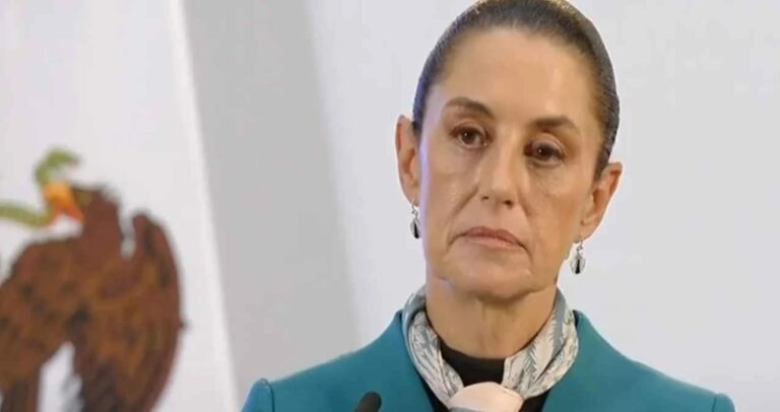Mexican President Claudia Sheinbaum has issued a stern warning to U.S. President-elect Donald Trump, cautioning that his proposed tariffs on Mexican goods could ignite a damaging trade war. During her morning press conference, Sheinbaum read a letter addressed to Trump, outlining her concerns and Mexico’s potential response if such measures are enacted.
“A tariff will be met with another tariff in response and so forth until we place common companies at risk,” Sheinbaum stated, signaling Mexico’s readiness to retaliate economically if necessary.
Eric Thompson Show
Trump, set to take office in January, has repeatedly pledged to impose high tariffs on Mexico as part of his strategy to address issues at the U.S.-Mexico border. In addition to targeting Mexico, Trump has threatened even steeper tariffs on China for its failure to curb the production and export of fentanyl, a synthetic opioid fueling the U.S. drug crisis.
The president-elect claims these tariffs are essential to push both nations into taking stronger actions to curb illegal immigration and drug trafficking, issues that have been central to his campaign promises.
President Sheinbaum, however, has pushed back against Trump’s accusations. She highlighted her administration’s efforts to manage migration flows and combat drug trafficking.
“Half of the migrants are doing so through the application CBP One,” Sheinbaum noted, referring to the U.S. Customs and Border Protection app used to facilitate legal migration pathways. She argued that these efforts have helped reduce the number of illegal border crossings reported by U.S. authorities.
Sheinbaum also pointed to her government’s significant drug enforcement actions, including large-scale drug seizures and the dismantling of production labs. She emphasized that Mexico has worked diligently to address these issues in cooperation with international partners.
In her letter to Trump, Sheinbaum criticized what she described as a lack of investment by the U.S. in addressing the root causes of migration.
“If the U.S. spent a fraction of the money they spend on war to address the root causes of migration, the issue would have been resolved by now,” she argued.
This critique echoes a broader debate over whether the U.S. should allocate more resources to fostering economic development and stability in Central America and Mexico as a way to reduce migration pressures.
Sheinbaum warned that escalating tariffs between the two nations could harm both economies, particularly industries that depend on cross-border trade.
“Trade between Mexico and the United States is deeply intertwined,” she explained, pointing to major sectors like automotive manufacturing, agriculture, and electronics that rely on seamless supply chains spanning the border.
By imposing tariffs, Sheinbaum cautioned, the U.S. and Mexico risk disrupting these industries, jeopardizing jobs, and increasing costs for consumers.
While Sheinbaum’s comments focused on tariffs, they also reflect a broader strategy to establish her government as a proactive and assertive partner in addressing regional challenges. Her public letter serves as both a defense of Mexico’s actions and a call for a more collaborative approach to solving shared problems.
The president has emphasized that while Mexico is willing to cooperate on issues like migration and drug trafficking, it will not bow to unilateral demands or punitive measures from its northern neighbor.
Trump’s proposed tariffs have sparked significant debate, with critics arguing they could damage diplomatic relations and harm economic ties with Mexico. At the same time, his supporters view the tariffs as a necessary step to hold other nations accountable for their role in the border crisis.
Sheinbaum’s strong response highlights the challenges Trump may face in implementing his trade policies, particularly with a neighboring leader unwilling to back down.
As Trump prepares to take office, tensions between the U.S. and Mexico are likely to remain high. Whether the two leaders can find common ground or whether their disagreements escalate into a full-blown trade conflict will depend on future negotiations.
For now, Sheinbaum’s warning serves as a reminder of the economic and political stakes at play. As the president put it, “We must address these challenges together, not through threats, but through cooperation and understanding.”
Widespread concerns about tariffs’ impact on cross-border trade, supply chains, and diplomatic relations make this a key issue to watch in the early days of Trump’s presidency. Whether his administration can balance its tough rhetoric with effective policy remains to be seen.


LOL Guess she won’t mind taking all those illegals in when she let them cross the border?
Mexico has never been a friend to the U.S. They are the most hypocritical bunch of miscreants next to the Islamists.
They’ve had an ax to grind ever since The Mexican-American war, between 1846-1848.
They could have stopped all those illegal-alien-invaders before they got to our border, but they didn’t. When a U.S. Citizen goes into Mexico, they are taking their life into their own hands. If they are accused of a “crime”, they are thrown into prison for life. They steal our businesses (like Nabisco and John Deere) Their drug-runners and criminals sneak into the U.S. then proceed to rape and murder U.S. citizens, mostly children. They goose-step their way across the country, sucking off our Welfare system, won’t learn to speak English, set up enclaves with Spanish-speaking-schools-only, demand things they are not entitled to, & put hospitals out of business.
Tariff the shit outta Mexico.
like the comment every word truthful and accurate
When Mexico’s President comments that our President-elect should focus our resources to helping Mexico and Central America, it sounds like BS! Why should we spend one dime on these countries to prevent an open border mess we didn’t create? This is blackmail. These stupid leaders who can’t control or clean up their economies, should NOT be threatening the United States! In other words, KEEP YOUR PEOPLE IN YOUR COUNTRY WHERE THEY BELONG! It’s not Trump’s job to fix your corrupt system or to pour money into improving your economy, perhaps you could get away with this garbage when our senile old fool Biden and his “word salad airhead” Harris were in charge, but NOT anymore as there’s a new COMPETENT LEADER coming in. The tariffs proposed by Trump wouldn’t be necessary IF other countries,including Mexico would assume the responsibility of straightening out their messes instead of unloading their people on us!
BLEATS THAT NEVER DID OR WILL REACH THE SANCTIMONIOUS EARS OF THE MAKER : MORE SO: MADAM : ” CLAUDIA SHEINBAUM ” THINK OF THE PEOPLE THAT YOU DO NOT PAY HEED TO IN YOUR OWN COUNTRY . THE ATTENTION WHICH YOU COULD CARE LESS OF YOUR BORDER COUPLED WITH THE SELFICH CRAVINGS OF THOSE WHO WILL UP TO EARLY JANUARY RELIEVE OUR ONCE ( U NI T E D ) STATES OF AMERICA . THERE NEVER WAS A PROBLEM WITH MEXICO OR AT LEAST SINCE SANTANA . DO UNDERSTAND YOU REAP WHAT YOU HAVE SOWN MADAM SHEINBAUM .